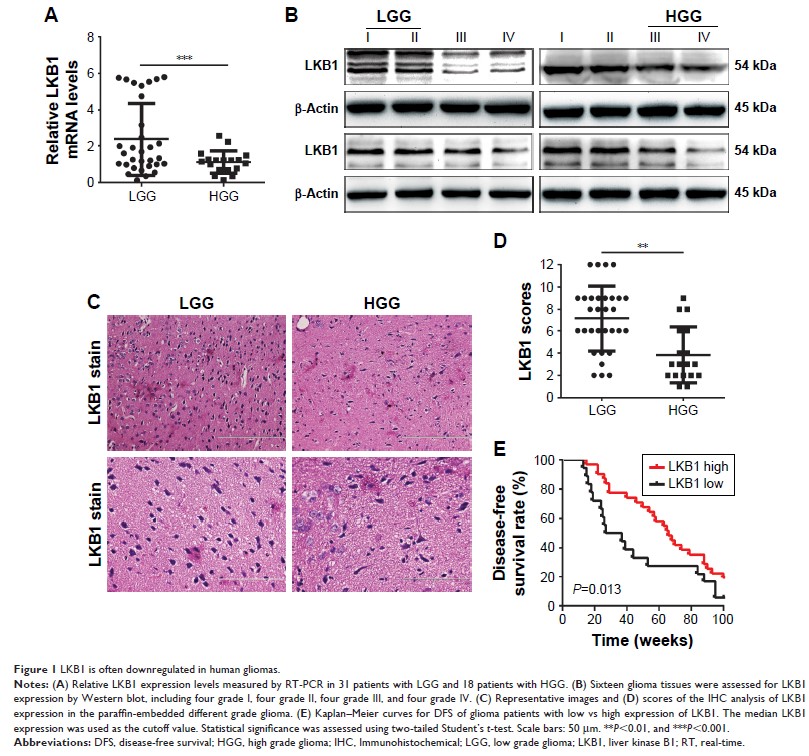9 7 8 1 6
论文已发表
注册即可获取德孚的最新动态
IF 收录期刊
- 3.3 Breast Cancer (Dove Med Press)
- 3.4 Clin Epidemiol
- 2.5 Cancer Manag Res
- 2.9 Infect Drug Resist
- 3.5 Clin Interv Aging
- 4.7 Drug Des Dev Ther
- 2.7 Int J Chronic Obstr
- 6.6 Int J Nanomed
- 2.5 Int J Women's Health
- 2.5 Neuropsych Dis Treat
- 2.7 OncoTargets Ther
- 2.0 Patient Prefer Adher
- 2.3 Ther Clin Risk Manag
- 2.5 J Pain Res
- 2.8 Diabet Metab Synd Ob
- 2.8 Psychol Res Behav Ma
- 3.0 Nat Sci Sleep
- 1.8 Pharmgenomics Pers Med
- 2.7 Risk Manag Healthc Policy
- 4.2 J Inflamm Res
- 2.1 Int J Gen Med
- 4.2 J Hepatocell Carcinoma
- 3.7 J Asthma Allergy
- 1.9 Clin Cosmet Investig Dermatol
- 2.7 J Multidiscip Healthc

LKB1 通过 NF-κB/Snail 信号传导抑制可以遏制神经胶质瘤细胞的侵袭
Authors Yuan Y, Li SL, Cao YL, Li JJ, Wang QP
Received 7 November 2018
Accepted for publication 4 February 2019
Published 2 April 2019 Volume 2019:12 Pages 2451—2463
DOI https://doi.org/10.2147/OTT.S193736
Checked for plagiarism Yes
Review by Single-blind
Peer reviewers approved by Dr Cristina Weinberg
Peer reviewer comments 3
Editor who approved publication: Dr Sanjeev Srivastava
Background: Liver
kinase B1 (LKB1) is involved in various human diseases. Aberrant expression of
LKB1 expression is involved in glioma progression and associated with
prognosis, however, the specific mechanism involving NF-κB/Snail signaling
pathways remain unknown.
Materials and methods: In the
present study, quantitative real-time PCR analysis was used to investigate the
expression of LKB1 tumor tissue samples and cell lines. In glioma cell lines,
CCK-8 assay, transwell invasion and migration assays were used to investigate
the effects of LKB1on proliferation and invasion.
Results: We
observed that LKB1 knockdown promoted glioma cell proliferation, migration and
invasion. This effect was induced through NF-κB/Snail signaling activation.
Also, LKB1 overexpression suppressed proliferation, migration, and invasion,
which could be rescued by Snail overexpression.
Conclusion: Taken
together, our results show that LKB1 knockdown promotes remarkably glioma cell
proliferation, migration and invasion by regulating Snail protein expression
through activating the NF-κB signaling. This may serve as a potential
prognostic marker and therapeutic target for glioma.
Keywords: glioma,
proliferation, migration, invasion, LKB1, NF-κB, snail
